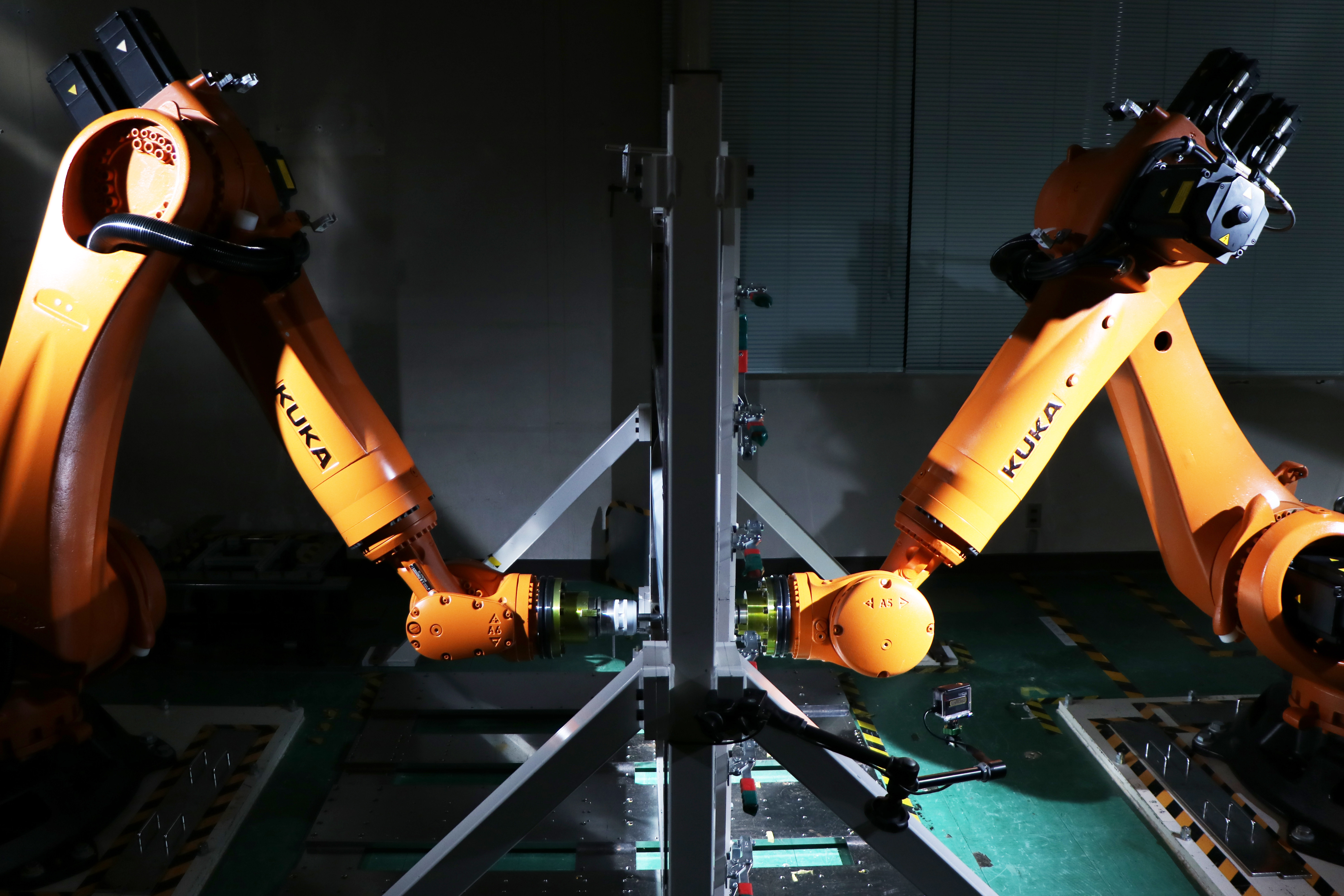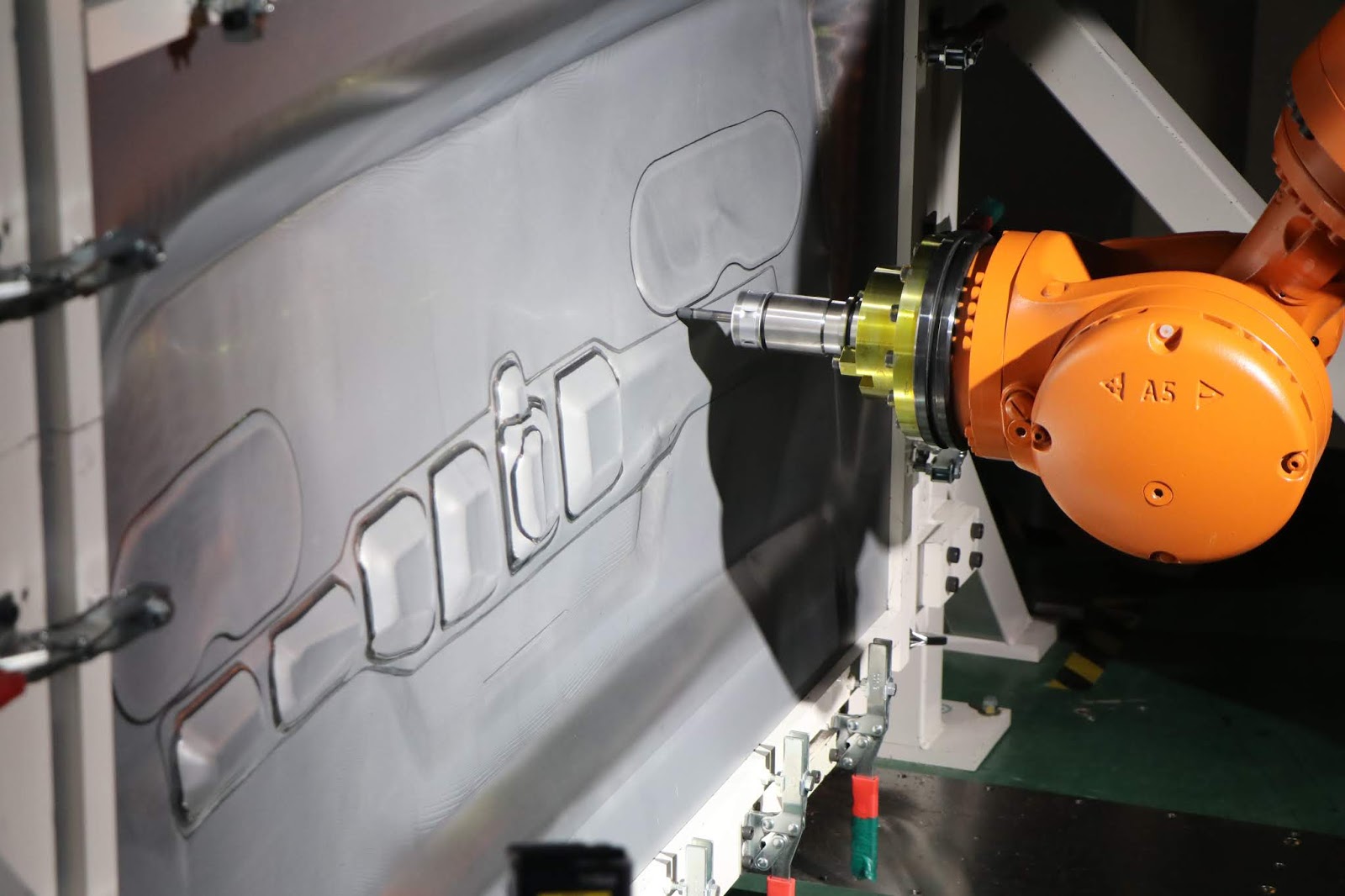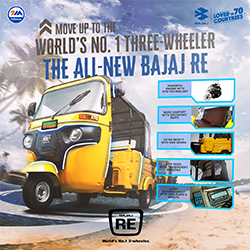Nissan teaches robots to make replacement parts for cars

Nissan has developed a new way to use robots to make car parts out of sheet steel, a breakthrough that could make replacement parts for discontinued models more widely available for customers.
Nissan hopes to commercialize the proprietary technique, known as dual-sided dieless forming. The technique involves two synchronized robots working from opposite sides of a steel sheet, using diamond-coated tools to gradually shape the steel.
Thanks to its flexible production, short lead times and minimal upfront costs, the new technique could make it commercially viable to produce and sell a wide variety of afterservice and replacement parts in small volumes for cars that Nissan no longer makes. This was previously not possible due to the high upfront costs and long lead times to develop and make dies for stamped parts.
Until now, dual-sided dieless forming had been considered too difficult to commercialize. This was due to the complexity of programming two robots to operate synchronously while ensuring consistent quality. Existing techniques have primarily relied on single-sided forming, which limits the complexity of shapes that can be created. By placing robots and tools on opposite sides of a steel sheet, they can create more difficult and detailed shapes.


 The new technique was made possible thanks to the production engineering expertise at Nissan’s Production Engineering Research and Development Center, along with advancements in materials technology by Nissan’s Research Division. It represents three major breakthroughs:
The new technique was made possible thanks to the production engineering expertise at Nissan’s Production Engineering Research and Development Center, along with advancements in materials technology by Nissan’s Research Division. It represents three major breakthroughs:
- The development of advanced programs capable of controlling both robots with a high degree of dimensional accuracy, enabling the formation of detailed convex and concave shapes.
- The application of a mirrored diamond coating to tools, reducing friction while eliminating the need for lubrication. This has numerous benefits, including consistency of surface quality and low-cost, environmentally friendly operation.
- The generation of optimized pathfinding logic for robots, drawing on the ample expertise and press-forming simulation techniques ordinarily used by Nissan’s production engineering teams. This enabled Nissan to achieve high quality results early in the development process.
Nissan plans to continue pursuing advancements in mass production while also dedicating R&D resources to honing its flexible low-volume production techniques.
About Nissan Motor Co., Ltd.
Nissan is a global full-line vehicle manufacturer that sells more than 60 models under the Nissan, INFINITI and Datsun brands. In fiscal year 2018, the company sold 5.52 million vehicles globally, generating revenue of 11.6 trillion yen. Nissan’s global headquarters in Yokohama, Japan, manages operations in six regions: Asia & Oceania; Africa, the Middle East & India; China; Europe; Latin America; and North America. Nissan has partnered with French manufacturer Renault since 1999 and acquired a 34% stake in Mitsubishi Motors in 2016. The Renault-Nissan-Mitsubishi alliance sold 10.76 million vehicles combined in calendar year 2018. For more information about our products, services and commitment to sustainable mobility, visit nissan-global.com. You can also follow us on Facebook, Instagram, Twitter and LinkedIn and see all our latest videos on YouTube.






















0 comments